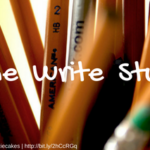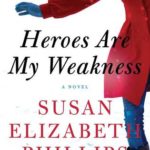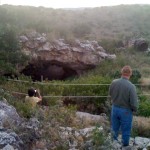I’ve been thinking a lot about music and words lately. I consider my tastes to be pretty eclectic and odd (I wanted to write “obscure,” but I’m not that big a hipster), and lately I’ve been paying closer attention to the music I enjoy, trying to uncover exactly what appeals to me about each genre to which I listen.
Until recently it’s been mostly about the instrumentation and the beat of the song. Stuff like this:
It’s rhythmic, electric, and awesome. But I have zero clue what they’re saying.
Words are important. Music conveys meaning, but so do words — often in ways that music can’t. This is partly the reason I don’t like most pop or rap music; sure the beat is great, but the message is often so meaningless or negative that I don’t want to listen to it.
Favorite music
After a quick (and very unscientific) browse through my collection, my music tendencies are pretty clear:
- A capella (meaning no instruments are used)
- Raw
- Excellent harmonies
- Ancient
- European
- Involve telling stories
These categories tend to bleed into each other, but they give a pretty good snapshot of the bulk of my music.
Exhibit A
I’m obsessed with Sacred Harp, which is all a capella. I could go on listing my favorite Sacred Harp songs all day, but “Prospect” was the first to make me cry (openly, hideously, in the middle of a singing convention).
Jesus can make a dying bed
Feel soft as downy pillows are;
While on His breast I lean my head,
And breathe my life out sweetly there.
This type of music definitely fits in the “raw” category, with references to “fiery billows” and sickness, pain, and sadness. But there’s so much joy as well. Each song is like a prayer, a request for help or a moment of thankfulness. It’s incredibly powerful, with the words meaning just as much as the notes.
Exhibit B
I’ve had musician Frank Turner’s “English Curse” stuck in my head for weeks:
If you steal the land of an English man
You shall know this curse:
Your firstborn son’s warm blood will run
Upon the English earth.
This song has it all: the lack of music forces the listener to pay attention to the words (which tell a story!), the singer is clearly emotional about and invested in what he’s singing, and it has the flavor of something that would be sung in a crumbling English tavern in defiance of foreign tyrannical rule (even though it was written in the early 2000s). Plus it’s totally badass.
Exhibit C
I love me some Simon and Garfunkel, with their rendition of “Scarborough Fair” being among my favorites:
Are you going to Scarborough Fair?
Parsley, sage, rosemary and thyme
Remember me to one who lives there
She once was a true love of mine.
I didn’t know until sometime in high school that Simon and Garfunkel were not the original writers, and that the song itself started out as a poem that can be traced back to at least 1670. It’s got a surprising history you should definitely check out.
Exhibit D
Scottish and Irish music, although often sad, has some of the best uses of words and storytelling. “The Parting Glass” is a traditional—and metaphorical—song that was often sung at the end of big gatherings. In typical style, the Irish tend to play/sing is more somberly, and the Scottish pep it up a bit.
Oh, all the comrades e’er I had,
They’re sorry for my going away.
And all the sweethearts e’er I had,
They’d wish me one more day to stay.
But since it falls unto my lot
That I should rise and you should not,
I gently rise and softly call,
Good night and joy be with you all.
I like this version by the Wailin’ Jennys the best because it allows the great harmonies to shine though:
Exhibit E
If you’re looking for storytelling music, look no further than Loreena McKennitt, who is known for adapting ancient music and poems into amazing works of art. I love all her music, but my current favorite is “The English Ladye and the Knight,” adapted from Sir Walter Scott’s poem of the same name:
It was an English ladye bright,
(The sun shines fair on Carlisle wall)
And she would marry a Scottish knight,
For Love will still be lord of all.
Her sire gave brooch and jewel fine,
Where the sun shines fair on Carlisle wall;
Her brother gave but a flask of wine,
For ire that Love was lord of all.
For she had lands both meadow and lea,
Where the sun shines fair on Carlisle wall,
For he swore her death, ere he would see
A Scottish knight the lord of all.”
In conclusion
Words are important. Words are powerful. They can be a prayer, a curse, a story, a journey. They can build us up or tear us down, inspire or terrify us. They can bring us to tears, to our knees, to heaven or hell. They matter.
Lo, there do I see my father
Lo, there do I see my mother
And my sisters and my brothers.
Lo, there do I see the line of my people
Back to the beginning.
Lo, they do call to me.
They bid me take my place among them
In the halls of Valhalla
Where the brave may live forever.







Awesome post! And where have the Wailin’ Jennys been all of my life???
I discovered them on Pandora. 🙂 Either on my Sacred Harp channel or my Tim Eriksen channel. Aren’t they fabulous? I could swim in that sound.